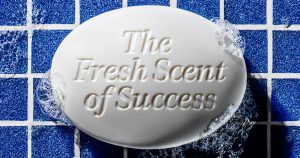Coaching is The Success Algorithm
– by Colle Davis
 Having pure raw talent, a strong drive and high intelligence will not make you a success in business. These are valuable resources help, but they are not enough in today’s world. You need an edge, an advantage, to help you reach your goals.
Having pure raw talent, a strong drive and high intelligence will not make you a success in business. These are valuable resources help, but they are not enough in today’s world. You need an edge, an advantage, to help you reach your goals.
If you have been in your current position for three years or more, you are blinded and boxed in by your biases, your coworkers, your company and your social media. These biases prevent you from seeing the opportunities and advantages of taking risks. The tiny behavioral or thinking risks available by the second are there, and yet you cannot see the rewards.
Michael Lewis’ new book, The Undoing Project, lays out his premise about how prejudices and biases blind those helping others develop and adhere to the best available algorithms. Collecting and utilizing the best data for making decisions is distorted by unconscious preferences because the flawed choice seems to be the best, makes perfect sense and can be defended with the logic of the data.
 Rarely do I write about myself and my experiences because it is too easy to descend into a bloggy rant from the loft perch of a soapbox. This Coach’s Notes is an exception to demonstrate the impact of coaching, and I trust it is not bloggy nor a rant.
Rarely do I write about myself and my experiences because it is too easy to descend into a bloggy rant from the loft perch of a soapbox. This Coach’s Notes is an exception to demonstrate the impact of coaching, and I trust it is not bloggy nor a rant.
My start in coaching was with a mentor. She was the most respected and in-demand ‘counselor,’ therapist, communications helper in the city. She possessed no degree in the helping arts or licensing of any kind, and I never heard her referred to as a coach. She had a Master’s Degree in English. My doctor referred me to her when my health would not improve no matter what he did or had me do.
I met her in February, co-teaching classes with her in April and welcomed my first client in October of that year. In December we were driving to Philadelphia to meet with clients when she turned to me and said, ‘You are better than I will ever be. You simply need to learn the techniques.’
There is no response available for that kind of praise except, ‘Thank you, I will learn.’ And, I spent the next three years being her protégé, reading everything I could find on helping others help themselves, went to as many seminars as I could find and became a full-time coach and single dad supporting three teenagers at home.
The early algorithm used developed out of three questions posed to prospective clients:
- What do you want? It must be tangible, and it cannot involve feeling.
- When do you want it? Setting it in a time frame makes it real.
- What will your life be like when you get it? Describe the impact of achieving the goal.
These questions take from twenty minutes to a year to answer. They are very hard to answer because most people do not future with purpose and no one had ever asked them the questions.
The three questions evolved over the last thirty plus years and now are focused much tighter on outcomes, not goals.
- What do you want for an outcome?
- What resources do you need to achieve it?
- How will your life be different when you get it?
 Notice the time frames have changed from nebulous future to right now and the questions can be used to guide every decision regardless of size or impact. ‘Where do we go for dinner’ is an excellent starting point for practicing.
Notice the time frames have changed from nebulous future to right now and the questions can be used to guide every decision regardless of size or impact. ‘Where do we go for dinner’ is an excellent starting point for practicing.
My expanding practice and education continued over the years, and the data became wider, deeper and more granular as I learned to see and be in the world differently. I read hundreds of books, continued to attend seminars and when the Internet came along explored until my eyes started to give out.
Here are the main sources of the algorithms I teach to my clients:
Krishnamurti for peace of mind: http://jkf.org
Nassim Nicholas Taleb for logic and decision making.
My Coach’s Notes: For the constant support and the occasional nudge.
I have written over a thousand Coach’s Notes since 1996, and our website, myoach.com, has been online since 1994, and I have had the same phone number since then. It is in writing, coaching, and teaching that the inspiration and humbleness reside. If it were easy, the pay would be a lot less because lazy people would be coaches.
Coaching instills the success algorithm for you by reframing your skills, talents, abilities, and contacts to leverage your time and move work to fun. The thrill of achievement adds encouragement and reinforces the drive to take risks carrying rewards. Once your mind is reprogramed, the behavior becomes unconscious and easy.
In addition to the above questions, here are the other guidelines used by my clients:
- What are the upside: downside of this decision, risks: rewards – see Antifragile by Taleb
- What’s in it for you and will the other person also win?
- What has to happen for your outcome to happen?
- Do you really want this outcome?
- What will happen if you do not get it? What will happen if you do?
- What Would Colle Ask? WWCA
 Now the hard part. It is not what you know, whom you know or how you use your access, it is how you use these resources, it is in the doing. Behavior is where success comes. Knowledge, wisdom, connections, and luck are fine to have, but success arrives through adjusting your behavior and influencing other’s behavior, and the results are sweet, fun and rewarding.
Now the hard part. It is not what you know, whom you know or how you use your access, it is how you use these resources, it is in the doing. Behavior is where success comes. Knowledge, wisdom, connections, and luck are fine to have, but success arrives through adjusting your behavior and influencing other’s behavior, and the results are sweet, fun and rewarding.
Success is much easier to achieve and maintain when you have a coach to nudge, cajole, push, scare and support you to make mistakes. Or, to prevent you from making tactical or strategic blunders. Talking to your coach once a week, knowing you have homework and specific behavior to work on and being able to ‘run something past them’ gives you a warm fuzzy feeling of accomplishment or a scary feeling because you did not get it all done.
The takeaway: Know what you want and what value it brings to you.
What do you want for an outcome? What are the upside/downside values?
Call to action. If you already have a great coach all of this is familiar, now refer your best friend or boss to the coach. If you are like most of my clients over the years and as a prospect has heard of coaching and maybe even attended some seminars by so-called coaches you have still waited two or more years to contact one to ask for a bit of their time. Congratulations, you have arrived.
Here is the offer: Your first conversation with me is FREE. The first regular session is on my dime. You are the one deciding to engage in coaching. Yes, top-level coaching is expensive and hiring one is very hard to explain to anyone who has not had a great coach. The cost turns most people cold, and it is a commitment to your career and success. It is also tax deductible, and some companies will help you with the fees. Only you can decide to hire a coach. A great coach will never try to sell you on coaching; they do not have to.
Call or email me today and gain access to the most important algorithm in life. Send me an email to set up a time cd****@*****ch.com or call me 804 467-1536 between 4:00 AM and 5:00 PM EST. Yep, I am up that early every day.
